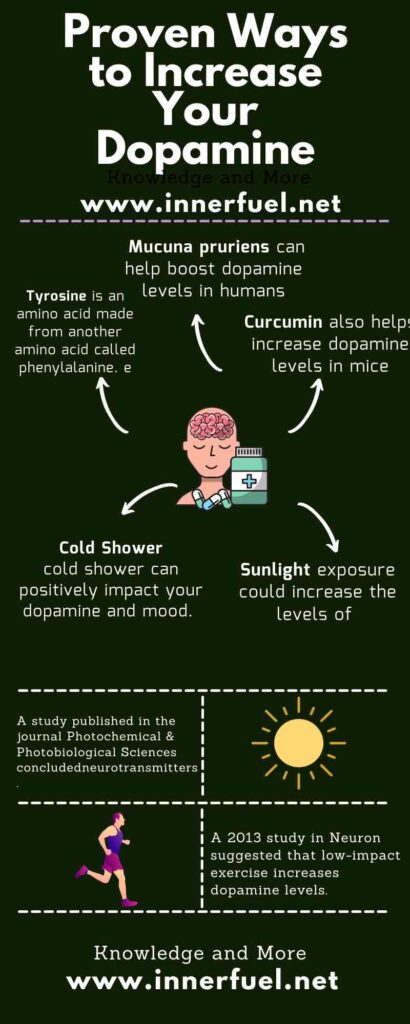
Dopamine is a neurotransmitter that affects motivation and happiness. Low dopamine levels can cause fatigue, depression, irritability, poor thinking, and memory loss.
Many people struggle with these symptoms. But there is hope. One study showed that dopamine reduced depression in mice.
If you have low dopamine levels, you’re not alone. Millions of people worldwide have the same problem. But there are ways to increase dopamine and feel better. Let’s get started.
What is Dopamine?
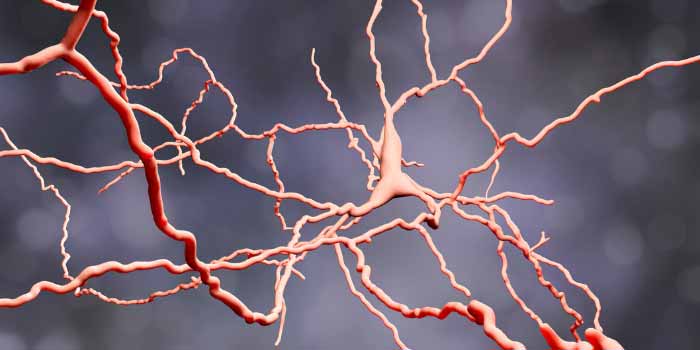
Dopamine is a neurotransmitter that affects the brain’s reward system. It’s released when we do something we enjoy. This signals us to keep doing that activity. Dopamine triggers pleasant experiences and pain relief in the prefrontal cortex.
When dopamine is released in large amounts, it creates feelings of pleasure and reward. This motivates us to repeat the activity. Many biological processes control how and why dopamine is released.
Low dopamine levels can reduce motivation and enthusiasm. Some scientists think more dopamine can lead to positive emotions, flow, and motivation.
Many people want to increase their dopamine levels naturally. Dopamine is linked to happiness and reward. But it’s important to regulate your levels. There are things you can do to help.
Dopamine, Serotonin, and Norepinephrine.

Dopamine, serotonin, and norepinephrine are neurotransmitters that produce pleasure. They are released in different amounts depending on what we do. This affects our motivation.
Dopamine is released in the brain when we feel positive emotions like excitement or anticipation. It’s also released when we expect a reward like getting paid for enjoyable work or receiving praise.
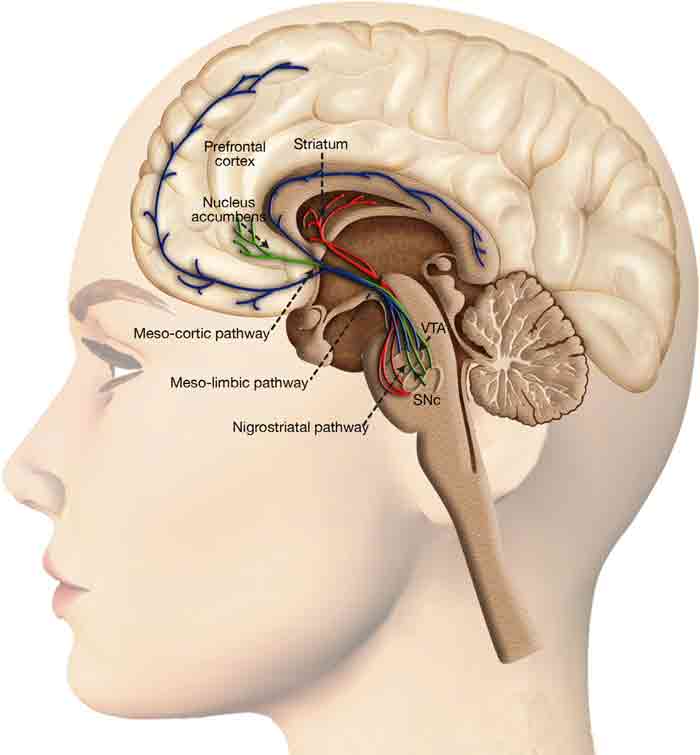
However, certain substances or behaviors can lead to an overactive reward center. This leads to addiction, the inability to control one’s desires for certain things that stimulate dopamine.
The human brain has two main ways to solve this problem: reducing dopamine receptors and lowering the amount of dopamine in your system that can result in decreased motivation satisfaction, and energy levels.
Addiction is a Complex
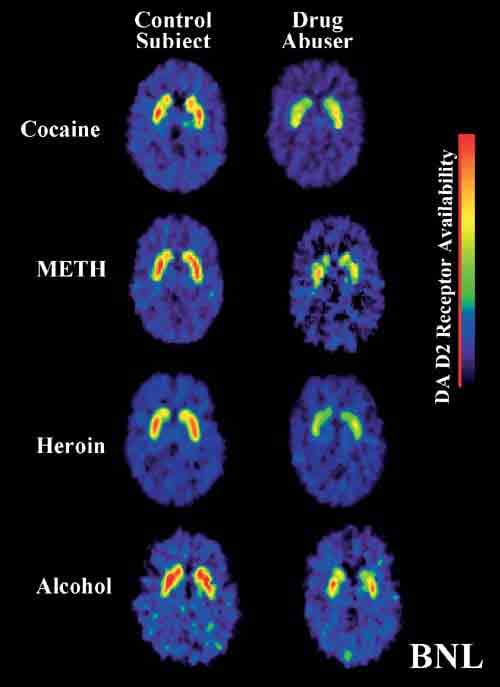
Research suggests that addiction can be triggered by a range of biological and environmental factors. These factors may include genetics, genes, developmental stages, childhood trauma, brain chemistry, and more. It is also believed that addiction can also be a form of defense mechanism to cope with difficult emotions or situations.
According to the National Institute on Drug Abuse, about 40 to 60 percent of addiction risk stems from genetic factors. Research has shown that addiction is a family disease that often starts with alcohol and drug use in childhood.(source)
Dopamine is a neurotransmitter that leads to the release of one hormone, norepinephrine, which influences your brain and body in a number of ways. Addiction can be associated with high norepinephrine levels due to the euphoria-like effects it provides.
For example, alcohol releases dopamine, a neurotransmitter responsible for controlling brain functions such as pleasure. It is found in the nucleus accumbens and striatum areas, allowing alcohol to have its desired effects, such as feelings of euphoria and relaxation.
Problem With Alcohol Consumption
Alcohol withdrawal is a process that occurs when someone who has been addicted to drinking suddenly stops drinking. Symptoms of alcohol withdrawal include insomnia, tremors, irritability, and even hallucinations. Dopamine depletion can occur with alcohol withdrawal and can result in severe depression.
Plus, like an addictive alcogol, cocaine is a dopamine antagonist. The drug increases the amount of dopamine in the brain, which is what gives users that euphoric feeling.
However, cocaine is a highly addictive drug that can seriously affect your health and well-being. It can cause heart failure, seizures, strokes, and even death. (source)
What Cause a Dopamine Deficiency?
There is a strong link between dopamine levels and personality. Some people have a high level of dopamine, while others are more susceptible to neurotransmitter deficiency. Some hypotheses suggest that the human brain has evolved to produce dopamine according to each individual’s social and physical status.
For More Information, Watch the video for 5 minutes and continue reading
Natural Ways to Raise Dopamine Levels – Dr.Berg
1- Lack of sleep may lower dopamine levels
Sleep is a crucial component of health and wellbeing – but it can be challenging to get enough sleep.
Research has shown that sleep deprivation can lead to a noticeable reduction in the availability of dopamine receptors in the morning. With these reduced dopamine levels, it becomes harder for people to make decisions, focus sharp, and stay motivated.(source)
A new study by the University of California, Berkeley, found that lack of sleep inhibits certain parts of dopamine transmission in the brain cells. Sleep deprivation leads to an inability to feel certain emotions such as happiness or excitement.
Please make sure you’re sleep optimized.
2- Dopamine, Smartphones & You:
Humans need to seek and maintain strong relationships, and it’s as fundamental to our psychological well-being as hunger. It is a primary driver of the human condition.
Evolution’s purpose is to continue the survival of species. This is reflected in the human need for social structures to make relationships with other people.
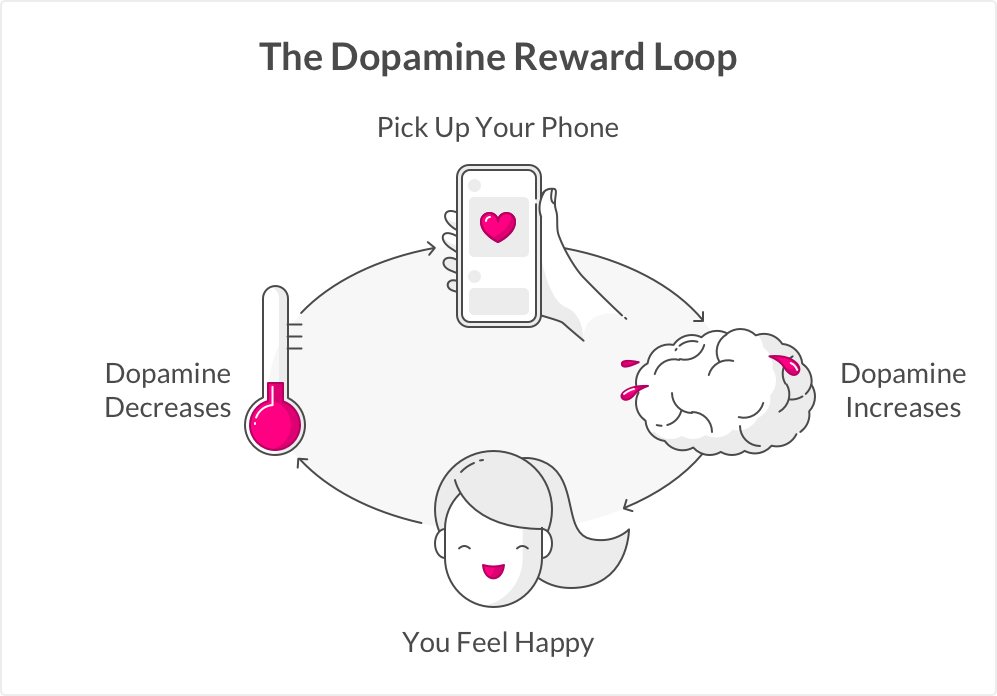
It looks like smartphones give us a platform to carry out our innate need for human connection. It’s a “fundamental feature of human evolution that predates smartphones by hundreds of thousands of years.”
It’s not hard to see why so many Americans now own smartphones — in addition to being convenient; they provide a means of communication with ease. And over the past five years, more and more people have realized the dangers that come with a cell phone addiction.
Continued use of your phone triggered a pattern in your brain that you noticed over time. Your brain started to associate anything that triggers dopamine release with your phone; As a result, your brain began to crave more and more dopamine from interactions with the device. This ultimately leads to people continuing to use their phones and neglecting other activities that could improve their health, such as exercise.
Do You Get Dopamine From Exercise?
Exercise is one of the best ways to help improve your mood, sleep, and overall health. But now scientists have found that exercise can also produce a natural high! They found that blood flow patterns in the brain are dramatically altered after a workout. These changes in blood flow can cause different neurotransmitters to be released into the brain, which leads to feelings of happiness and increased energy. Plus, exercise helps increase the production of BDNF, which allows you to feel great. (source)
One of the most common and highly effective methods to increase dopamine levels is exercise.
3- Video Game Addiction

Video games are a prevalent form of entertainment and have been around for decades. There are many different genres of video games, such as sports games, puzzle games, first-person shooters, racing games, and more. However, many people find it difficult to control their video game addiction and quickly become obsessed with these games.
Video games have become a massive part of everyone’s life. It is no longer just for children, but for adults as well. More than 2 billion people play video games globally, including 150 million in the United States.
Video games are meant to be an escape from reality, but for some gamers, their habit leads them to meet the criteria for addiction. The American Psychiatric Association defines addiction as “a chronic disease of brain reward, motivation and behavior that is manifested by both a biological dysfunction in receptor and signal transduction mechanisms and an associated behavioral addiction.” In video games, individuals can find themselves addicted to gaming just like they might
Our brains are wired to connect our actions and experiences. This means that when we experience something pleasurable or have a hyperarousal, the brain releases dopamine. These chemicals give us a sense of reward, which is why people are so addicted to video games.
The American Psychological Association defines video game addiction as an inability to stop playing video games and feeling distressed when trying to do so.
4- Pornography and Dopamine System

One of the main reasons people tend to get addicted to porn movies is compulsively consuming their content – they cause a sensation of “euphoria” the brain receives by flooding it with dopamine.
Addiction is the problem with pornography in general. Our dopamine levels rise when we receive a visual sexual reward, but this causes us to seek novelty constantly. That’s why it’s important to remember that desensitization is not a good thing and should be avoided at all costs
It can be hard not to pick up our phones when they are always there for us. After a long day, all we want is to see the familiar glow of our screens and connect with a friend or loved one who’s nearby.
The following conditions can present with low dopamine levels in the brain:
Dopamine levels are usually associated with people who have depression or anxiety. However, other conditions also lead to low dopamine levels, such as Parkinson’s disease, schizophrenia, and ADHD
For More Information, Watch the video for 4 minutes and continue reading.
Suggestion: ADHD Digital Planner
5- Sugar Consumption
There is a strong connection between the consumption of different types of food and dopamine levels in one’s brain. Eating sugar results in a release similar to high-level addictive drugs like heroin; cocaine is used to manipulate your body chemistry.
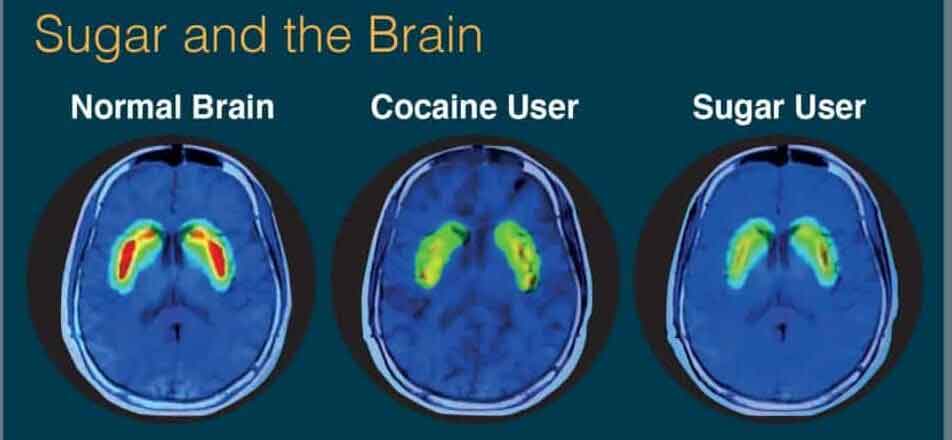
There are different types of dopamine: the first type, which comes from food, and the second type, which comes from drugs or alcohol.
Sugar is one of the most popular addictive substances in the world. It has been linked to various health issues like obesity, diabetes, and heart disease.
This study found that long-term consumption of high sugar levels can lead to changes in gene expression and dopamine availability. This disruption in the brain’s functioning can lead to various effects, including changes in mood and depression.(source)
Every time you take a bite of food, consider that you are programming your biology for health or disease. When you eat healthy food, you are, in fact, eating medicine.”
― Mark Hyman, The Pegan Diet: 21 Practical Principles for Reclaiming Your Health in a Nutritionally Confusing World
6- Marijuana Use May Reduce Your Brain’s Dopamine
Cannabis is the most commonly used psychoactive substance globally, with an estimated 3.9% of people aged 15-64 having consumed it in the last month. However, chronic cannabis usage has been associated with poor memory, inattention, and impaired learning performance.
People who smoke marijuana have lower dopamine levels in their brains. This chemical may play a role in developing several mental health disorders, including a lower grey matter in your brain and reduced dopaminergic activity.
The effects of marijuana use on the brain are not apparent, and researchers are still investigating, and we don’t know how adverse affect dopamine levels. However, studies have shown that cognitive ability, mood, and personality improve under some circumstances after regular/heavy marijuana use.
Marijuana addiction is often difficult to treat because it alters the brain’s normal functioning. Research has shown that individuals with cannabis use disorder significantly reduce dopamine levels in their striatum.
7- Stress Cause Dopamine Depletion
Long-term exposure to psychological stress or abuse increases the risk of mental illness and addiction.
Stress can also cause dopamine depletion. Chronic stress leads to a change in brain patterns. When people are stressed, the brain switches into survival mode, which causes dopamine production to slow. The body then responds to the environmental factors and experiences of the day, and dopamine levels go down. In addition, chronic stress blocks the growth of new brain cells, making the body more susceptible to mental and physical burnout.
Note: Too Much Dopamin is NOT GOOD
The brain releases dopamine when taking risks and achieving success, triggering a feeling of euphoria. This is why people feel “high” after winning or performing well. When there is too much dopamine in some regions of the brain, it can lead to such problems as anger, impulsiveness, and poor impulse control.(source)
What drug increases levels of dopamine?
Dopamine is a neurotransmitter that makes us feel good and helps the brain connect memories. Certain drugs, such as cocaine and methamphetamine, are notorious for causing an increase in dopamine levels to the point of addiction.
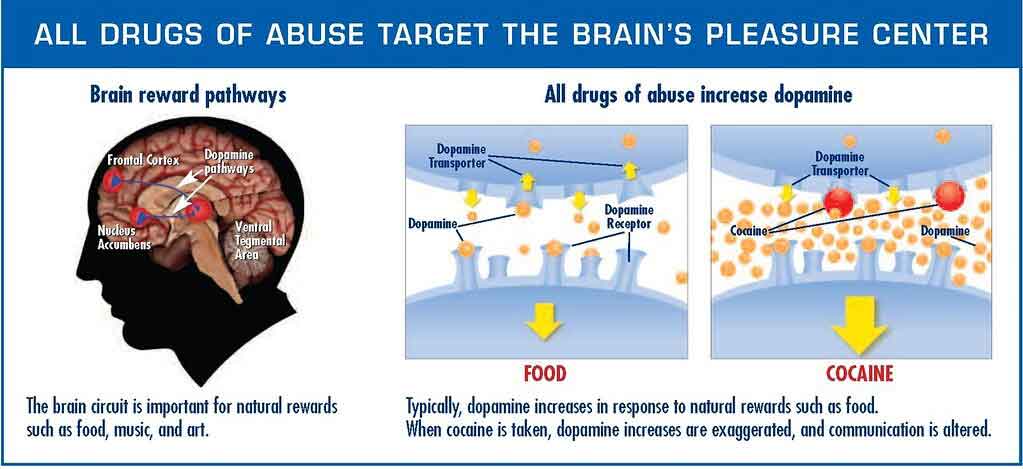
For a long time, people used these drugs to pleasure themselves and became accustomed to drugs’ effect to achieve such joy. However, as time passed and the number of people using these substances increased, it became apparent that these drugs were harmful.
These substances are going to cause a far more intense dopamine rush than anything else you’re going to find. Your brain is left craving more, and it’s harder to stop. Let’s check some of them.
Nicotine
Nicotine is a stimulant drug due to its effects on the neurotransmitter dopamine. It can release this neurotransmitter in the brain, most notably in the corpus striatum and frontal cortex. (source)
Body Hormones
Testosterone and dopamine are chemicals in the brain that help regulate mood. Dopamine is a neurotransmitter found in areas of the brain that control movement, emotion, and reward. Testosterone is a hormone released by the testes that play a role in sexual development and mental health, among other things.
Researchers have found that testosterone, estrogen, and glucocorticoids interact and impact dopamine levels. This can affect how well your brain matures and functions during adolescence adulthood.(source)
What’s the Difference Between Dopamine and Serotonin?
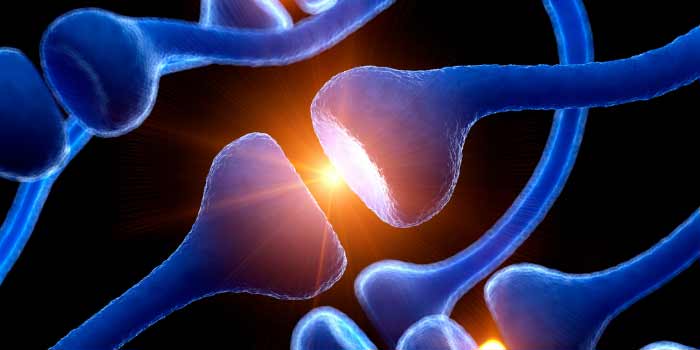
The difference between dopamine and serotonin is that dopamine is a neurotransmitter that helps the brain control movement and motivation, while serotonin affects mood and sleep. Some of the chemicals you should know.
Dopamine vs. Serotonin
Dopamine: Dopamine is a neurotransmitter that helps the brain control movement and motivation. It also controls other functions such as memory, learning, thinking, concentration, reward-seeking behaviors, sensory processing, sexual behavior, autonomic functions (respiration), appetite regulation, or metabolism.
Serotonin: Serotonin affects the moods and sleeps patterns of people with low serotonin levels in their brains; it also affects how we think about things emotionally.
- Serotonin—reduces the risk of depression in adolescents.
- Cortisol—decreases this stress hormone.
- DHEA—It is proven that this hormone boosts your levels of longevity.
- GABA (Gamma-aminobutyric acid)—This chemical can help by calming you down and relaxing your central nervous system.
- Endorphins—Endorphins are proteins released during physical exercise; they release a hormone called dopamine. This increases the “natural high” of this overall happiness neurotransmitter.
- Growth Hormone—increased levels of this youth-preserving hormone that decline with age
- Melatonin—Boosts this hormone responsible for restful sleep and helps with mood regulation.
Happiness, relaxation, and calmness are associated with serotonin, while rewards and productivity are associated with dopamine.
Dopamin Fasting

People who seek a “high” from dopamine-boosting activities believe the more they expose themselves to it, the more they need to pursue higher levels of stimulation to achieve the same effect.
Dopamine fasting is a trend that has hit Silicon Valley, where some people are looking for ways to reset their dopamine levels. This might mean cutting out smartphone use and social media or avoiding Netflix and video games as well as delicious foods and other pleasurable activities.
The result is typically a significant increase in dopamine sensitivity, leading to increased feelings of well-being and general happiness.
HERE 15 Proven Ways to Increase Your Dopamaine
1- Tyrosine
Tyrosine is an amino acid made from another amino acid called phenylalanine. It’s important for brain chemicals, including neurotransmitters, including epinephrine and norepinephrine.(source)

Twenty-two women were given a pill containing either tyrosine or placebo in this study. They were then asked to do an attention task (Tower of Hanoi puzzle). Tyrosine significantly improved working memory by increasing the speed.(source)
It has been found that patients with dopamine-deficient depression experience a lack of stimulation and motivation to take action, which creates issues with daily routine. One study among individuals with dopamine-deficient depression noted that tyrosine provided clinically significant benefits in their symptoms, mood, and cognitive performance.(source)
For More Information, Watch the video for 5 minutes and continue reading. After, go back and watch again:
Controlling Your Dopamine For Motivation, Focus & Satisfaction | Huberman Lab
2- Mucuna Pruriens

Mucuna pruriens is a tropical bean native to Africa, India, and Southern China. It is commonly used in traditional Ayurvedic medicine for anxiety relief and other conditions. The beans are also used in herbal supplements.
There is a compound that is not only found in Mucuna pruriens, but it is also the most significant compound found in this plant. This compound is called L-dopa. L-dopa helps your brain produce dopamine. Without dopamine, you would be unable to control your movements, and certain parts of your brain would no longer function correctly. If you are looking for a way to naturally. (source)
Research has shown that Mucuna pruriens can help boost dopamine levels in humans, particularly those with Parkinson’s disease. It also helps reduce symptoms in these people and improve movement.(source)
Mucuna pruriens powder could potentially be a treatment for infertile people. One study found that taking 5 grams of it increased dopamine levels in these men.(source)
Recently study also found that it could increase dopamine production, which is associated with improving mood and may be helpful for treating anxiety disorders(source)
3- Caffeine

Caffeine is a central nervous stimulant, which can be found in coffee, tea, chocolate, and more. Consuming caffeine regularly can release a hormone called adrenaline and temporarily provides the body with energy and alertness.
Caffeine is a stimulant that can improve focus, memory, and reaction time. Studies have found that caffeine can increase the release of neurotransmitters in the brain like dopamine. Increasing dopamine reuptake can help with motivation and concentration.(source)
Caffeine can make the brain more reactive to dopamine, but it doesn’t increase levels of the chemical in the brain. (source)
When caffeine is regularly consumed, the body can develop a tolerance to caffeine which means that it learns how to process increased amounts of it.(source)
.Too much coffee increases the body’s production of adrenaline and cortisol—two hormones that cause an increase in heart rate and blood pressure, feelings of anxiety, and other unpleasant symptoms.
Tyrosine can balance the effects of caffeine, preventing oversensitivity to the stimulant and helping you focus.
According to Andrew Huberman:
Caffeine helps dopamine sensitivity, L-Tyrosine helps dopamine production – Combination together may be a better idea who want to improve their cognition and mood level.
Caffeine is a chemical that blocks the reabsorption of dopamine back into our bodies. This means that it doesn’t increase the dopamine our bodies make, but it slows the rate at which dopamine is reabsorbed back into our bodies. Because caffeine increases the rate at which dopamine is reabsorbed back into our bodies
4- Curcumin
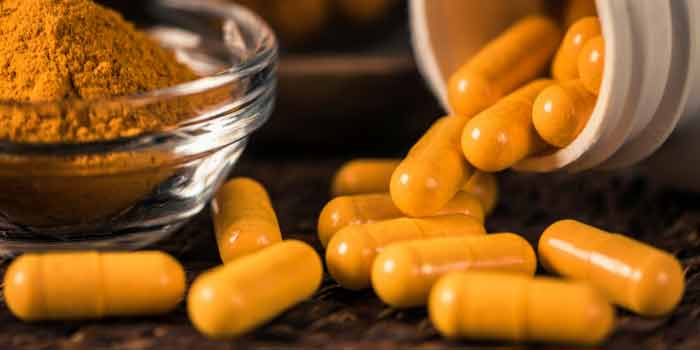
Curcumin is a compound found in turmeric & ginger that is believed to have antidepressant effects. This can be attributed to it’s ability to increase dopamine release from the brain, a chemical that regulates mood and feelings of happiness. Curcumin has been studied and proven to have antioxidant properties, which can help prevent the buildup of free radicals within the body.(source)
Curcumin also helps increase dopamine levels in mice.(source)
Inflammation may cause damage to dopamine receptors. Curcumin may be helpful to recovery free-radical damages coming from the toxins.
5- Fish Oil
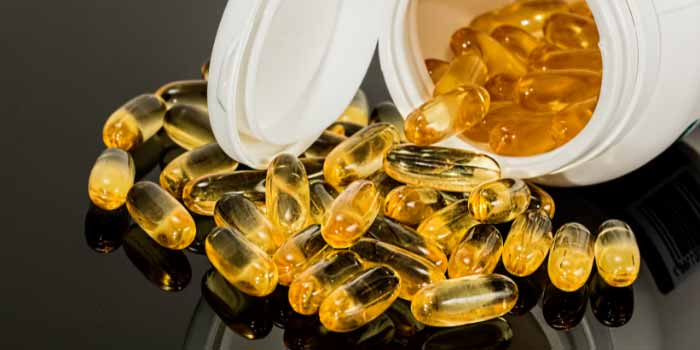
Omega-3 fatty acids have been shown to affect dopamine neurotransmission by reducing inflammation and changes due to inflammation. This can be assessed by looking at markers of axonal injury and microglia.
Omega-3 fatty acids are known to help decrease the risk of depression. They also help improve moods by improving serotonin levels and increasing dopamine levels in the brain. Some people take fish oil to help with their moods and increase dopamine levels in their brains.(source)
There’s been a lot of research on the effects of fish oil, and it seems to have a positive impact on numerous aspects of your brain. This is no exception, with dopamine levels in the frontal cortex being 44% higher after the fish oil diet on rat study.(source)
In general, people Consume omega-3 rich foods beneficial for overall health and the brain.
6- Ginseng

Ginseng is believed to have many health benefits that can increase the human body’s dopamine levels. It has been researched in both animal and test-tube studies, which indicate that ginseng can help with depression, insomnia, and other mental disorders.(source)
This has been suggested, and it may be partially because certain components in ginseng, like ginsenosides, boost dopamine levels in the brain.(source)
Yet more research is vital to determine the extent of how much ginseng improves brain function and dopamine production in humans.
Best Ways to Increase Dopamine Levels Naturally
7- Cold Shower

Cold showers aren’t for everyone, but if you’re looking for a way to increase dopamine levels, then cold showers may be worth it.
Exposure to cold temperatures releases chemicals in the body that cause a spike in hormones like dopamine and norepinephrine. These levels increase by up to 530% and 250%. The release of these hormones can help boost mood, relieve symptoms of depression, and even improve concentration.
.These chemicals are released into your brain and help you feel better. In addition to boosting your mood, the electrical impulses also have antidepressive effects. So, a cold shower can positively impact your dopamine and mood. And what’s more, it’s excellent for your health.
8- Exercise

Do you wonder why exercise increases dopamine levels? This chemical is responsible for enhancing our mood and spurring us to achieve our goals.
A 2013 study in Neuron suggested that low-impact exercise increases dopamine levels. Even a simple brisk walk can increase dopamine levels. In addition, regular exercises increase your mood and help you feel better overall. But why exactly do they do this? Well, the answer lies in the brain’s reward system.
Exercise releases endorphins and helps one feel better by stimulating the reward system. In addition, regular exercise can lead to higher dopamine levels in the brain, which can help ease depression symptoms and relieve anxiety.
Exercise found that rats exposed to running had a marked increase in dopamine release and increased their number of dopamine receptors. But not fully understood how this increased number of receptors benefits the rats. Still, exercise has been shown to affect certain behaviors associated with reward processes.(source)
Additionally, recent research has shown that practicing a type of yoga exercise can also help to increase dopamine levels in the brain. (source)
Stimulate New Brain Cells With Exercise
Here the things exercise also helped for:
- Exercise increases levels of BDNF in the brain, which can improve cognitive function and reduce anxiety and depression.
- The increase in BDNF is caused by the inhibition of histone deacetylases, which generally suppress BDNF production.
- Exercise also increases the production of β-hydroxybutyrate, a molecule inhibiting histone deacetylases.
- Fasting can also increase levels of β-hydroxybutyrate and BDNF in the brain.
- Both exercise and fasting can positively affect brain health by increasing levels of BDNF through the production of β-hydroxybutyrate.
9- Meditation

Meditation is a practice that has been used in many different religious traditions. New research has found that these benefits may be due to increased dopamine levels in the brain. A team has conducted these studies at the University of Michigan, which they hope will lead to continued research into how dopamine makes people more creative.
Mindfulness can have a measurable impact on these brain chemicals. The practice of meditation has been shown to improve GABA, epinephrine, and dopamine levels.
This 2002 study from the John F. Kennedy Institute found that those who regularly meditated had a 65 percent increase in their dopamine levels, associated with a sense of joy and well-being. By increasing dopamine levels, meditation may provide long-term benefits to the practitioner’s health.(source)
Meditation, like exercise, can change your brain. You’ll have a much more holistic reality experience with a deep bond as a more aware individual.
10- Sunlight

The seasonal affective disorder causes low energy, depression, and other mood-related symptoms. This is because of a lack of sunlight exposure, leading to a vitamin D deficiency.
The neurotransmitters that help regulate moods are serotonin, dopamine, and norepinephrine. A study published in the journal Photochemical & Photobiological Sciences concluded that sunlight exposure could increase the levels of these neurotransmitters.(source)
According to a new study, the more time people spend in the sun, the more likely they have higher dopamine levels. The study was conducted on 68 healthy adults. After 30 days of receiving at least 10 minutes of sunlight exposure per day, it showed that dopamine receptors were significantly higher in reward and movement regions.(source)
The study involved 35 participants who went to a tanning salon on average of 2 times per week for one year. A analysis in compulsive tanners found that tanning sessions led to significant boosts in dopamine levels and a desire to repeat the behavior.(source)
Note: Too much exposure to sunlight can cause skin cancer, so we need to be careful with how much time we spend outside.
11- Raw Cacao
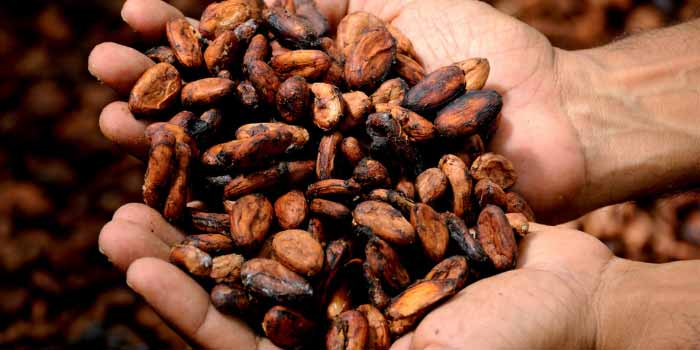
The brain is the body’s most important organ. The quality of oxygen and nutrients delivered to the brain can impact memory, concentration, and processing speed. The flavanols in cocoa contribute to blood flow and nutrient delivery in the brain.
Cacao is a source of phenylethylamine (PEA) which, in turn, leads to tyrosine that then becomes dopamine. Cacao is, therefore, likely to make you feel better and keep you more motivated throughout the day.
Research has confirmed that cacao can increase the production of phenylethylamine (PEA) in the human brain. This mood-boosting feature has led to cacao becoming a sensation among consumers. (source)
Dark chocolate contains a higher percentage of cocoa solids and a richer flavor. The chocolate is also less processed and tastes better than milk chocolate, which is mostly sugar. Dark chocolate also contains more antioxidants than milk chocolate- You’ll get more benefits from Dark chocolate.
12- NAC (N-Acetyl Cysteine)

NAC, a supplement form of cysteine, is commonly used to prevent and treat bronchitis and pneumonia. NAC has also been researched to treat other conditions such as Alzheimer’s disease, osteoarthritis in the knee, and chronic obstructive pulmonary disease (COPD).
N-acetylcysteine (NAC) is a critical compound that can help to replenish glutathione, a potent combination that helps regulate brain glutamate levels. This compound has been proven to significantly benefit the brain and body.
NAC supplements have improved both dopamine function and disease symptoms such as tremors. These supplements have also been shown to reduce the symptoms of Parkinson’s, Huntington’s, and other neurodegenerative diseases. (source) Nac also helps:
- Attention and focus
- Motivation
- Memory
- Learning
- Regulation of mood
Methamphetamine is a drug that can have devastating effects on the brain. NAC (N-acetylcysteine) was used in this study to reduce methamphetamine-induced neurotoxicity in dopaminergic neurons.
There is a lot of discussion on whether or not NAC is a healthy supplement that can help improve brain health. People agree that NAC has anti-inflammatory properties and can help boost cognitive functions such as memory and learning.
13- Glycine and Dopamine
Glycine is a non-essential amino acid that plays a critical role in both inhibitory and excitatory neurotransmission. It’s used to grow and maintain tissue and make hormones and enzymes. The liver uses it to detoxify fats and it can treat some cancers.
Why is Glycine as important neurotransmitter and dopamine?
- Glycine acts as an inhibitory neurotransmitter in the spinal cord and brainstem, binding to the glycine receptor (GlyR).
- Glycine also acts as a co-agonist of the N-Methyl-D-Aspartate receptor (NMDAR) in excitatory glutamatergic neurotransmission.
- Glycine concentration in the synaptic cleft is regulated by glycine transporters, GlyT1 and GlyT2, which regulate the reuptake of the neurotransmitter.
- Glycine has been proposed as a potential treatment for treatment-resistant schizophrenia (TRS) due to its interaction with dopamine and glutamate signaling in the brain.
Glycine helps transmit signals in the brain. It works with NMDA receptors to release dopamine, a neurotransmitter. You can find glycine in meat, fish, dairy, and eggs.
Dopamine balance is disturbed by iron overload.
The majority of research has focused on iron-related liver injury. Unfortunately, iron overload can cause brain cells damages, and lower neurogenesis and BDNF provoke a neurotoxic effect.
- People won’t aware that iron buildup or iron overload in the brain is typically related to neurodegenerative illnesses such as Parkinson’s and Alzheimer’s disease, cellular damage after a hemorrhagic stroke, and even traumatic brain injury. (source)
- According to research, iron overload disrupts the balance of neurotransmitters. When iron is infused into the substantia nigra, it disrupts monoaminergic systems, notably the dopaminergic pathway, which results in Parkinson-like symptoms of motor impairment. (source)
Iron overload can be more common and dangerous than iron deficiency. This is because the body has no good way to eliminate excess iron. Adult men and postmenopausal women are at risk for iron overload.
In other words, these populations do not experience frequent blood loss. Some of the symptoms of iron overloads are:
- Fatigue (feeling tired a lot).
- General weakness
- Erectile Dysfunctions (iron toxicity may cause erectile dysfunction (impotence), lack of sex desire in males, and menstrual cycle absence in women.)
- Iron accumulation in the brain has been associated with Brain fog, neurodegenerative diseases, and psychosocial disorders.
Get Rid of Excess Iron to Balance Your Dopamine Level
Excess iron elimination and detoxification may benefit both men’s and women’s health by improving dopaminergic cells, neurotransmitter formations, sexuality, hormones, and cell health. Here are some pointers:
- Reduce heme iron intake, and red meat will help overcome and prevent iron toxicity
- Exercise: Exercise can help you use excess iron for energy and mitochondrial energy, and the body and muscles utilize more iron while exercising and sweating.
- Milk Thistle: According to studies, milk thistle may reduce ferritin levels, improve liver health, and address other issues related to iron overload. Milk thistle polyphenols, such as silymarin and silybin, have been demonstrated to aid liver function and promote health. Milk thistle also helps to boost glutathione production, eliminating other heavy metal toxins.
- Donate blood: The best strategy for optimizing your iron level and helping others is donating blood. On average, you can give 20% of your irons in just one session of blood donation, which will help to overcome iron overloads.
Summary
Eating a balanced diet with enough protein, vitamins, minerals, and probiotics can help your body make dopamine. This ensures you get all the nutrients you need.
Lifestyle factors also affect dopamine levels. Sleep, exercise, music, meditation, and sunlight can all boost dopamine. This can help you feel and function better.
–
–